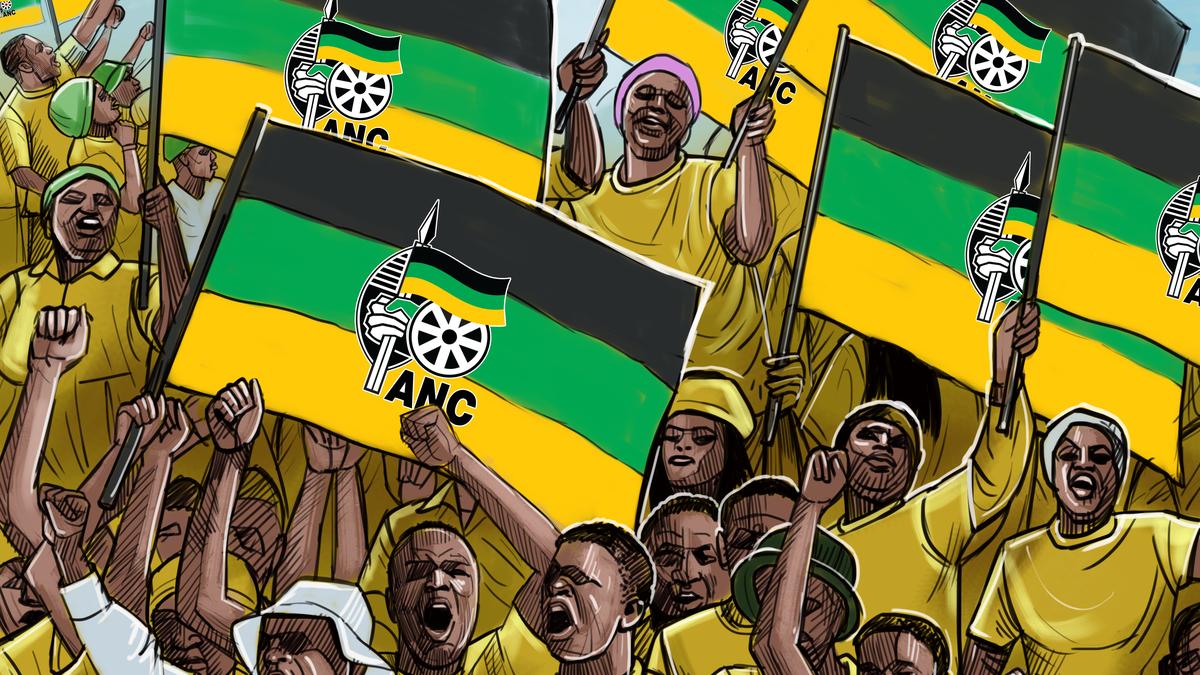
African National Congress | A party in decline Premium
The Hindu
South Africa's ANC faces challenges as voters express disillusionment over poverty, inequality, and declining democratic support.
Even as elections in India are drawing to a close, the citizens of yet another BRICS country and emerging economy are going to the polls on May 29. The largest country in GDP (nominal) terms in Africa, South Africa has been ruled for three decades by the party that was most associated with the anti-Apartheid struggle — the African National Congress (ANC).
Identified with leaders such as Nobel prize winning Nelson Mandela, who went on to become the first President of racially-integrated South Africa, the ANC has maintained its dominance as the party of governance in the country, so much so that political observers have termed the ANC’s rule in South Africa one of a dominant party presiding over a “party-state”.
The ANC today is helmed by President Cyril Ramaphosa, a businessman with a long association with the party, who served as chairperson of the Constitutional Assembly after the first democratic elections in South Africa following the end of Apartheid in 1994. Mr. Ramaphosa emerged as ANC president after a strongly contested leadership race against Nkosazana Dlamini-Zuma, who was supported by then president and widely derided to be a corrupt leader, Jacob Zuma. After the election, Mr. Zuma resigned following pressure from the party and Mr. Ramaphosa was elected unopposed as the President of South Africa by the National Assembly in February 2018.
Mr. Ramaphosa was seen by many as someone who could bring in change after Mr. Zuma’s controversial years. But his government, elected in May 2019 after winning 57.5% of the votes in the general election, had to tackle many economic challenges — the outcome of the COVID-19 pandemic, the inherited weaknesses in the economy and the many failures of state-owned enterprises.
Also read: People of Indian descent seek to leave their mark in South African polls
As a party leader, he also had to confront a leadership that included heavyweights who were associated with Mr. Zuma. In July 2021, when Mr. Zuma refused to comply with a summons order from a Constitutional Court that was set up to inquire into allegations of “state capture” and “fraud” in the public sector during his tenure, he was sentenced to 15 months of imprisonment. Mr. Zuma went on to announce that he would be voting for the newly formed party, the uMkhonto we Sizwe (named after the armed organisation affiliated to the ANC during the anti-Apartheid struggle) in the 2024 elections despite being a lifelong member of the ANC.
Earlier, factional troubles in the ANC had also resulted in the formation of new parties such as the Economic Freedom Fighters (EFF) by former ANC Youth League leaders. The EFF, which won 10.8% of the vote in the 2019 elections, retains an ideological view that is closer to some of the radical sections of the ANC and believes in measures such as nationalisation of mines, banks and other industries and appeals to unemployed youth who are not seen as ANC supporters.











